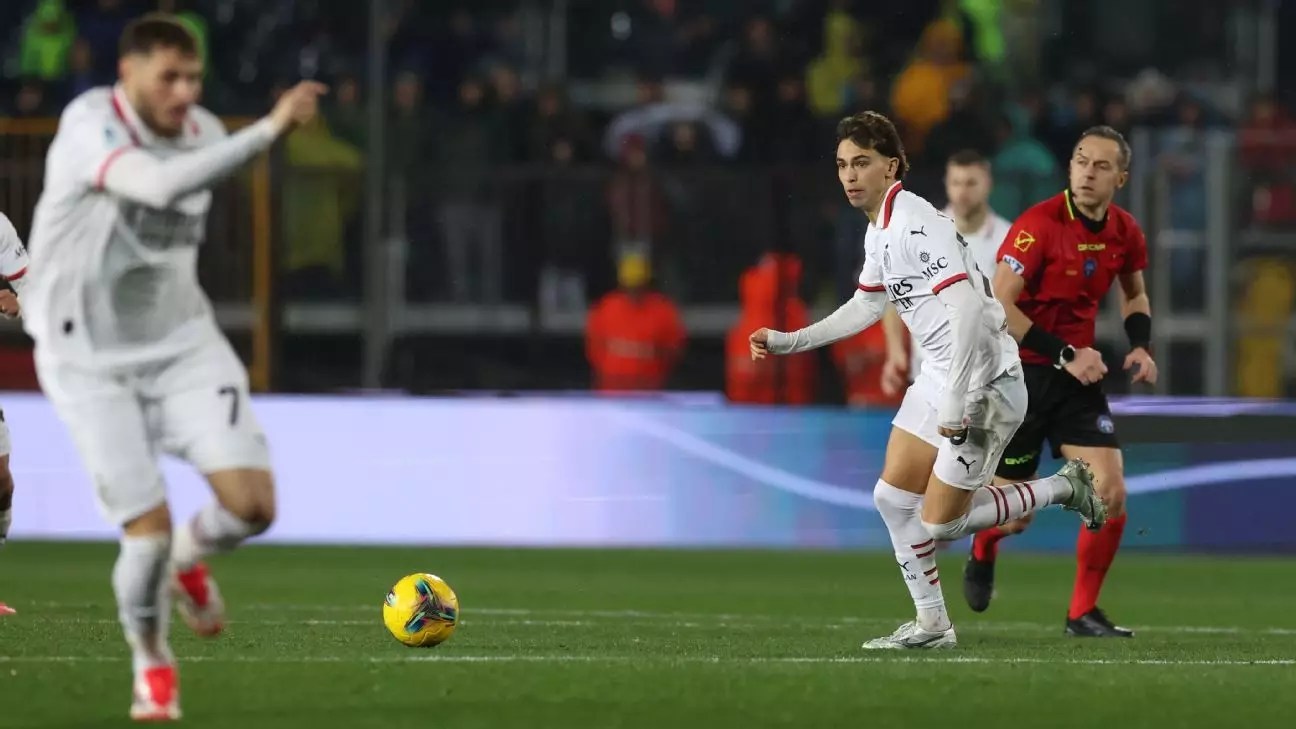Chelsea Football Club finds itself in a delicate situation following the loan departure of forward João Félix to AC Milan. Enzo Maresca, the head coach, recently made a striking remark, indicating that the team has not felt the void left by Félix despite a persistent injury list affecting key players. This assertion not only hints at the internal dynamics of the Chelsea squad, but it also raises questions about player performance, expectations, and managerial strategy amidst challenges.
While it’s common for a club with a rich history like Chelsea to experience fluctuations in player capability and contributions, the departure of Félix is a microcosm of larger issues at play. Acquired for a substantial €50 million from Atlético Madrid, Félix’s transfer was expected to inject creativity and dynamism into the Chelsea midfield and attack. However, his statistics paint a stark picture: just one goal in twelve league appearances, with only three starts. The struggle to adapt to the Premier League backdrop raises critical discussions about player fit, coaching strategies, and the pressure applied on incoming talents.
The Impact of Injuries on Team Strategy
As Chelsea grapples with multiple injuries, the ramifications of Félix’s absence become even more pronounced. In the recent FA Cup elimination against Brighton, the team relied on Christopher Nkunku as a makeshift central striker after both Nicolás Jackson and Marc Guiu were ruled out. Maresca’s declaration, “I don’t think we miss João,” reflects an attempt to diffuse potential scrutiny regarding the loss, but it inadvertently underscores the ongoing tactical challenges faced by the club.
In the fickle world of football, looking beyond a player’s immediate contribution is essential. Maresca’s comments about needing to experience life without certain players to comprehend their significance reveal a deeper philosophical take on team development. It suggests an exploration of identity; a chance to evaluate squad members’ true value in various match scenarios rather than relying on inherent star power.
A Future Without Félix: Possible Benefits
Contrary to initial expectations, attributed partly to his inconsistent performances, the loan to AC Milan might serve as a mutually beneficial situation. Since joining Milan, Félix has exhibited promising form, scoring on debut and garnering attention for his performances in Serie A. This success away from Chelsea may serve as a catalyst for both parties. For Milan, he represents an upgrade, while for Chelsea, it could signal the importance of realigning resources and tactics without him in the squad.
This transitional phase for Chelsea may open doors for other players who perhaps would not receive as much playing time. The apparent focus on team cohesion and strength in adversity could yield an enriched team dynamic. Ultimately, in the face of adversity, decisions made will test the resilience and adaptability of Maresca and his squad, reiterating that in football—more than metrics—context matters significantly.
The complexities surrounding João Félix’s tenure at Chelsea encapsulate the unpredictable nature of football. The balance between individual brilliance and collective efficacy remains paramount, especially in circumstances where crucial cogs are missing. As Chelsea navigates through trying times, it remains to be seen whether the lessons learned in patience, strategy, and development will lead them to a more cohesive and effective future, either with or without João Félix.


Leave a Reply